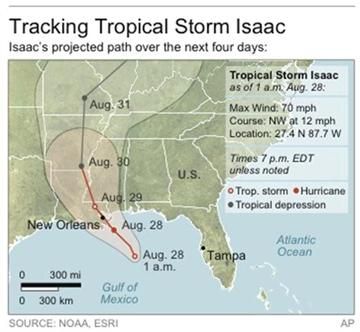This week marks the first anniversary of MSNBC’s Up with Chris Hayes (@upwithchris), the two hour discussion program that airs at 8 AM on Saturdays and Sundays. It has been a refreshing addition to the standard fare news talk programs, providing interesting guests from the news, news media and blogosphere. you can follow the conversation and add your own comments by following the hashtag #Uppers on Twitter, on Facebook and now at Up with Chris.Tumblr.com:
Today on Up w/ Chris Hayes we celebrated our one-year anniversary. Our first year on the air has been defined by a sense of self-discovery and experimentation, a determination to innovate, to push forward the boundaries of what our show can be. We’ve journeyed from a conference room in 30 Rockefeller Plaza to Inequalistan to Occupy Wall Street, tinkering and improving at every step of the way. And you, our online audience, have been an integral part of that process, making Up w/ Chris very much a communal enterprise.
In the spirit of that innovation, today we’re launching a Tumblr. For as much as you see on the air, there is so much more that goes into producing Up w/ Chris every week. We have a rigorous, thoughtful, creative editorial process, and we’re hoping this platform will be an expression of that. We’ll be posting considerably more of all those revealing production elements you see each week on the show: charts, graphs, photos, videos, thoughts from our producers, and more. We hope it will be evocative of the UP sensibility – weekend mornings, all week long.
We also want this to be as much of an interactive experience as possible. On Tumblr you can reply, reblog, ask us questions and more. Is there an especially knotty political issue you think UP can elucidate with a handy chart or graph? A myth we can debunk with a quick review of the empirical evidence? Some historical perspective we can provide? Let us know.
When we first launched our Twitter account – and when Wyeth Ruthven, the original #upper – created the #uppers hash tag, there were just eleven mentions. Today, our record is above 7,000. We hope to see the same growth and enthusiasm here. Welcome!
– Sal Gentile, segment & digital producer, Up w/ Chris Hayes.
Host Chris Hayes (@chrislhayes) discusses what we know now with guests John Nichols, Washington correspondent for The Nation and associate editor of Wisconsin’s Capital Times; L. Joy Williams, (@ljoywilliams) political strategist and founder LJW Political Stategies, co-host of radio show “This Week in Blackness.”; Ana Marie Cox, (@anamariecox) columnist for The Guardian and founder of the political blog Wonkette; and Kevin Williamson, deputy managing editor of The National Review.
Teachers End Chicago Strike on Second Try
by Monica Davey and Steve Yaccino
CHICAGO – The Chicago Teachers Union agreed on Tuesday to end its strike in the nation’s third-largest school system, allowing 350,000 children to return to classes on Wednesday and bringing to a close, at least for now, a tense standoff over issues like teacher evaluations and job security that had upended this city for more than a week.
In a private meeting on Tuesday afternoon, 800 union delegates voted overwhelmingly to suspend the strike after classes had been halted for seven school days, which left parents at loose ends and City Hall taking legal action. The delegates, who had chosen on Sunday to extend their strike rather than accept a deal reached by negotiators for the union and the Chicago Public Schools, this time decided to abandon their picket lines.
Karen Lewis, the union president, described the voice vote as 98 percent to 2 percent in favor and a sign that the deal was seen as good, though hardly perfect.
Village relocated due to climate change
by Brook Meakins
With sea levels rising, the villagers of Vunidogoloa in Fiji have been forced to move to higher lands
For the most part, many people still experience climate change on an academic rather than a personal level. But for the villagers of Vunidogoloa on Vanua Levu, Fiji’s second largest island, climate change has become a daily intrusion on every day life. The villagers of Vunidogoloa are currently relocating to drier and higher land because of sea level rise, erosion, and intensifying floods. I had the opportunity to visit the village midway through this process – one of the very first village relocation projects in the world – and spoke with people young and old about their upcoming move.

 Over the last two days
Over the last two days  The US Olympic Committee learned this week that you should never insult 2 million people from around the world who have very sharp objects in their hands. As was
The US Olympic Committee learned this week that you should never insult 2 million people from around the world who have very sharp objects in their hands. As was 
 Why is the New York Times surprised? I’m not.
Why is the New York Times surprised? I’m not. The Greeks have decided to stay the course with the center right and have given a
The Greeks have decided to stay the course with the center right and have given a  In France, exit polls indicate that
In France, exit polls indicate that  There are no results yet for Egypt. But there is news and it is not good for the Egyptian people no matter who wins.
There are no results yet for Egypt. But there is news and it is not good for the Egyptian people no matter who wins.